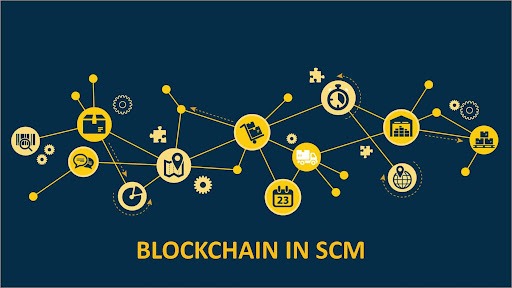In today’s rapidly evolving business landscape, supply chain management is a critical aspect of ensuring the efficient movement of goods and services from manufacturers to end-users. With the advent of blockchain technology, the supply chain industry has witnessed a revolution in transparency, traceability, and security. This article explores the innovative applications of blockchain in supply chain management, highlighting its benefits, challenges, and future prospects.
Understanding Blockchain Technology
Defining Blockchain
Blockchain is a distributed ledger technology that records transactions across multiple computers in a way that ensures the immutability and security of data. Each transaction, or block, is linked to the previous one, forming a chain. This decentralized nature eliminates the need for intermediaries, such as banks or third-party logistics providers, in verifying and recording transactions.
Key Features of Blockchain
Blockchain technology is characterized by several key features:
- Decentralization: Data is stored across a network of computers, reducing the risk of a single point of failure.
- Immutability: Once data is recorded on the blockchain, it cannot be altered or deleted.
- Transparency: All participants in the blockchain network can view transaction history, enhancing trust.
- Security: Cryptographic techniques ensure the integrity and confidentiality of data.
Applications of Blockchain in Supply Chain Management
Enhanced Traceability
Blockchain enables end-to-end traceability of products, from raw materials to the final product. Each step in the supply chain is recorded on the blockchain, providing a transparent and auditable history. This is especially valuable in industries where product authenticity and origin are crucial, such as food and pharmaceuticals.
Real-Time Monitoring
IoT (Internet of Things) devices can be integrated with blockchain to monitor the condition and location of goods in real time. This allows supply chain managers to proactively address issues such as temperature fluctuations, spoilage, or theft.
Streamlined Documentation
Traditionally, supply chain transactions involve extensive paperwork and manual verification processes. Blockchain simplifies this by digitizing and automating documentation, reducing the risk of errors and delays.
Efficient Payments and Smart Contracts
Blockchain-based smart contracts automate payment processing when predefined conditions are met. This eliminates the need for intermediaries, reduces delays, and minimizes the risk of disputes in financial transactions.
Benefits of Blockchain in Supply Chain Management
Transparency and Trust
Blockchain enhances transparency by providing all stakeholders with access to a single source of truth. This transparency builds trust among participants, reducing the likelihood of disputes and fraud.
Reduced Costs
By eliminating intermediaries and automating processes, blockchain can lead to significant cost savings in supply chain operations.
Improved Security
Blockchain’s cryptographic security measures protect data from unauthorized access or tampering, making it highly secure compared to traditional systems.
Faster Transactions
Blockchain’s ability to execute transactions in near real time accelerates supply chain processes, reducing lead times and enhancing overall efficiency.
Challenges and Future Prospects
Integration Challenges
Adopting blockchain technology requires integrating it with existing supply chain systems and platforms. This can be a complex and resource-intensive process.
Scalability
As blockchain networks grow, scalability becomes a concern. Ensuring that the technology can handle a high volume of transactions is essential for its widespread adoption.
Regulatory Framework
The regulatory landscape for blockchain is still evolving. Supply chain managers must navigate these evolving regulations to remain compliant.
Interoperability
Different industries and organizations may use different blockchain platforms, potentially leading to interoperability challenges. Standardization efforts are underway to address this issue.
Conclusion
Blockchain technology has the potential to revolutionize supply chain management by increasing transparency, efficiency, and security. While there are challenges to overcome, the benefits of adopting blockchain in supply chains are compelling. As the technology matures and becomes more widely accepted, supply chain professionals can look forward to a future where blockchain-driven innovations reshape the industry and redefine the way goods and services are delivered to consumers.

